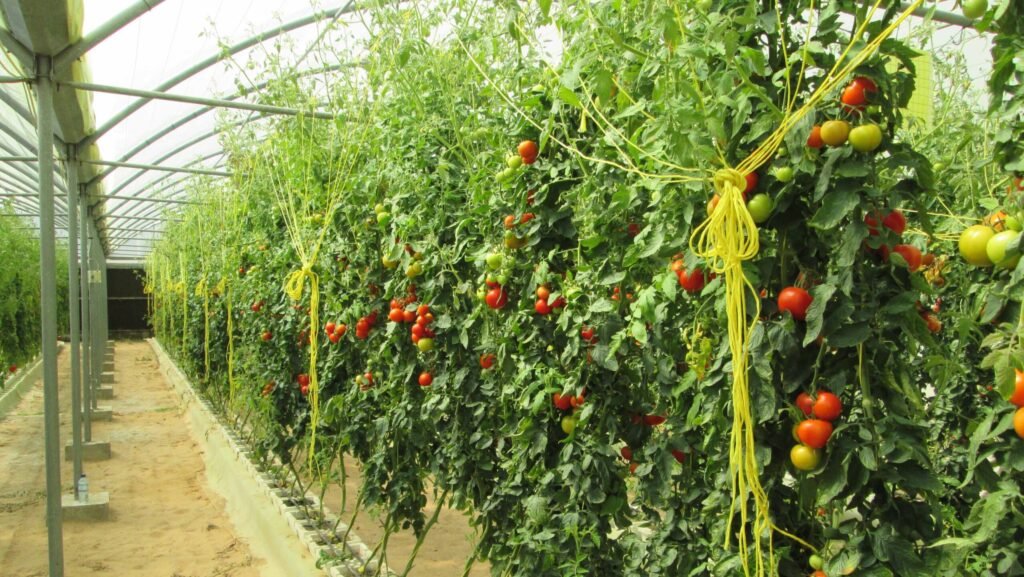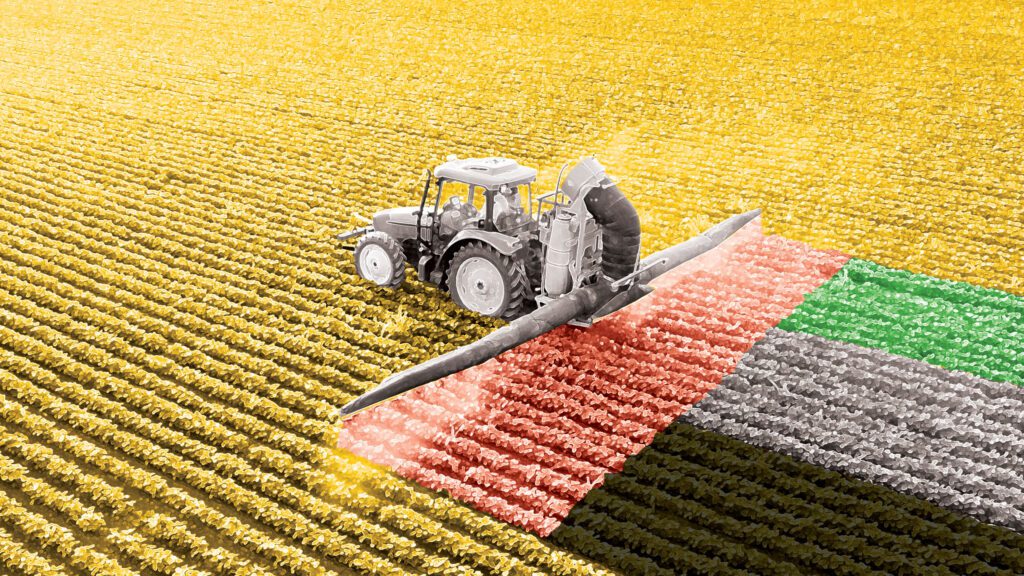The United Arab Emirates (UAE) has launched a comprehensive strategy to ensure long-term food security by 2051. With limited arable land and harsh climatic conditions, the country has been heavily reliant on food imports. The National Food Security Strategy 2051 aims to tackle these challenges by fostering sustainable agriculture, leveraging advanced technologies, and establishing robust supply chains.
Why Food Security Matters
Food security is the backbone of any nation’s stability and growth. It ensures that people have reliable access to sufficient, nutritious, and affordable food. With global population growth, climate change, and geopolitical uncertainties, the importance of national food resilience cannot be overstated. For the UAE, food security is a top priority to reduce dependency on imports and build a self-sustaining food system.
Moreover, ensuring food security has significant economic and social benefits. A stable food supply supports public health, reduces malnutrition, and strengthens social welfare. Additionally, local food production stimulates the agricultural sector, creates jobs, and enhances the country’s GDP.

Key Objectives of the Strategy

The UAE’s National Food Security Strategy 2051 is built around five main objectives:
- Diversifying Food Sources: The country plans to expand partnerships with various global suppliers while also encouraging local food production.
- Promoting Sustainable Agriculture: By investing in smart farming technologies like hydroponics, aquaponics, and vertical farming, the UAE aims to grow food in controlled environments.
- Reducing Food Waste: Initiatives will be introduced to minimize food waste along the supply chain and promote efficient food consumption.
- Developing Agri-Tech Solutions: Advanced technologies such as artificial intelligence (AI), robotics, and genetic engineering will enhance productivity and resilience.
- Enhancing Emergency Preparedness: The UAE will strengthen its food storage and supply networks to ensure food availability during crises.
Innovative Farming Techniques
The UAE is already leading in agri-tech innovations. Controlled-environment agriculture, like vertical farms and greenhouses, is becoming increasingly common. These facilities use minimal water, conserve energy, and produce crops year-round. Desalination technology, coupled with water recycling systems, further supports agricultural sustainability.
Other promising developments include the use of drones and AI-powered sensors to monitor crop health, optimize irrigation, and detect pests. Precision agriculture techniques ensure that resources like water and fertilizers are used efficiently, reducing waste and improving yields.
Partnerships and Collaborations
To execute its food security goals, the UAE is fostering collaborations with international research institutions and private sector companies. Recent agreements with global agricultural technology firms are helping to transfer knowledge and innovation. Additionally, the government supports local farmers with grants, training programs, and technology subsidies.
Universities and research centers within the UAE are also contributing to agricultural advancements. Collaborative research projects focus on developing drought-resistant crop varieties and sustainable farming methods suitable for arid environments.
Reducing Reliance on Imports
Currently, the UAE imports about 90% of its food. However, with the implementation of the Food Security Strategy 2051, this dependence is expected to decrease. By supporting local production and diversifying import sources, the UAE can mitigate risks associated with international trade disruptions.

Key trade partnerships will continue to ensure the steady supply of essential food items. The UAE is actively seeking bilateral agreements with food-exporting countries and participating in global initiatives that promote food security.
Sustainable Livestock and Aquaculture
Recognizing the importance of animal protein, the UAE is also investing in sustainable livestock farming and aquaculture. Modern fish farms equipped with recirculating aquaculture systems (RAS) are expanding the country’s seafood production. These closed-loop systems minimize water usage and prevent environmental pollution.
Similarly, advanced feed solutions are being developed to reduce reliance on traditional animal feed, promoting eco-friendly alternatives. Innovations in cellular agriculture and lab-grown meat are also being explored as part of the UAE’s forward-looking approach.
Community Involvement and Awareness
Raising awareness about sustainable food consumption and waste reduction is another critical aspect of the strategy. Educational programs and community initiatives will encourage responsible food choices. Additionally, promoting urban agriculture through community gardens and rooftop farms will empower residents to contribute to food security.
Schools and universities will integrate food security education into their curricula, ensuring future generations understand the importance of sustainable agriculture and food management.
Government Commitment
The UAE government has shown strong dedication to making the 2051 strategy a success. Various entities, including the Ministry of Climate Change and Environment, are working closely to monitor progress and adapt policies as needed. Regular reports and transparent updates will ensure accountability and continuous improvement.
Public-private partnerships (PPPs) play a key role in executing large-scale projects. Companies specializing in agri-tech, logistics, and food distribution are collaborating with the government to implement sustainable solutions. The UAE’s dedication to innovation has already attracted global investors to support these efforts.
Conclusion
The National Food Security Strategy 2051 reflects the UAE’s proactive approach to building a sustainable and resilient food system. Through innovation, collaboration, and commitment, the nation is well on its way to achieving self-sufficiency in food production. As the strategy unfolds, it will not only secure the country’s food supply but also serve as a model for other countries facing similar challenges.
The UAE’s vision for a food-secure future is bold and forward-thinking, ensuring that generations to come will have access to safe, nutritious, and affordable food. By embracing technological advancements, promoting sustainable practices, and engaging communities, the UAE is setting a global standard in food security and resilience.
Also read: No More Paper! Inside Dubai’s Mission to Go Fully Digital













